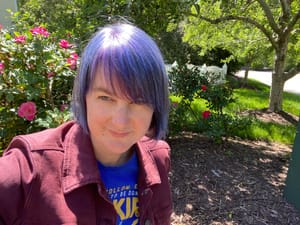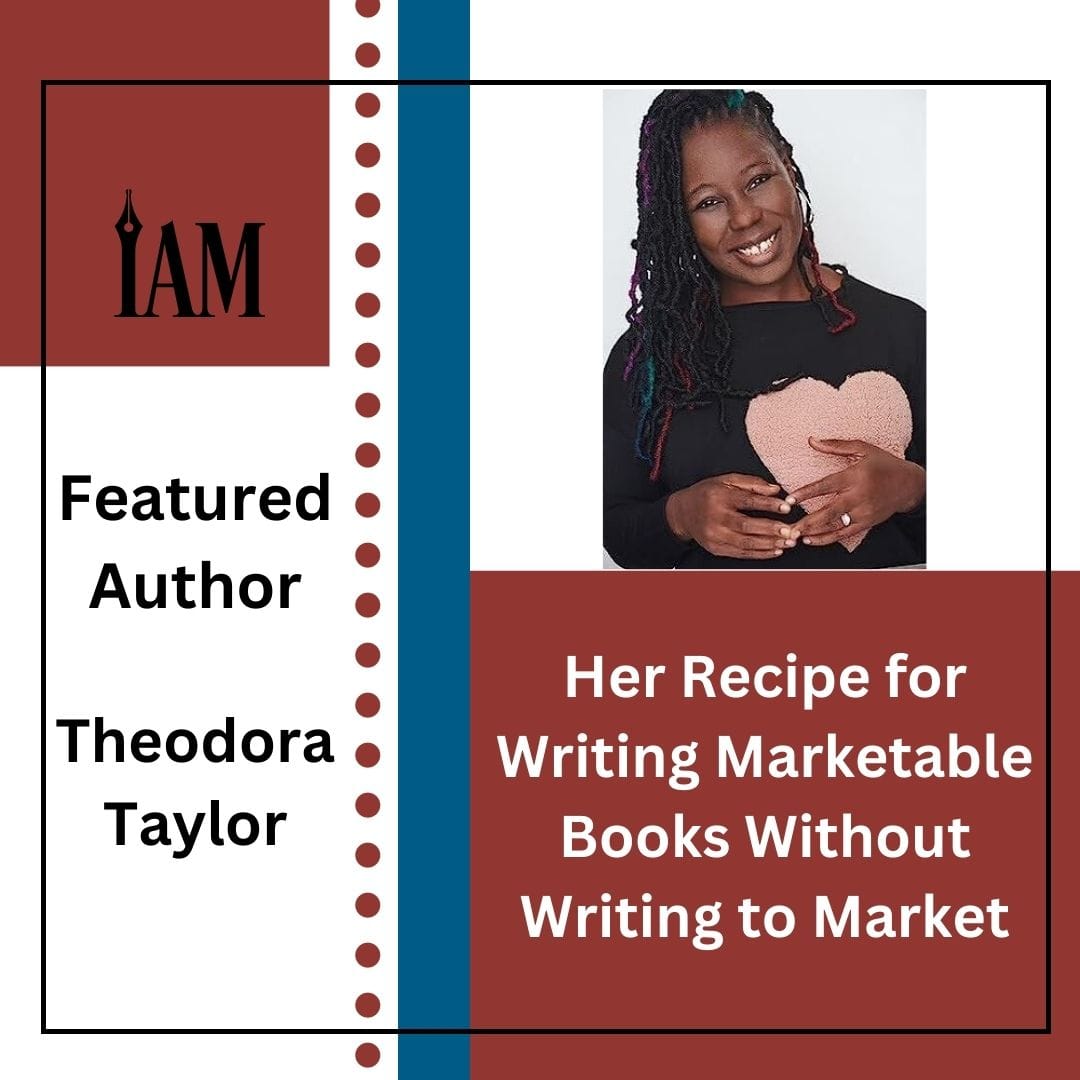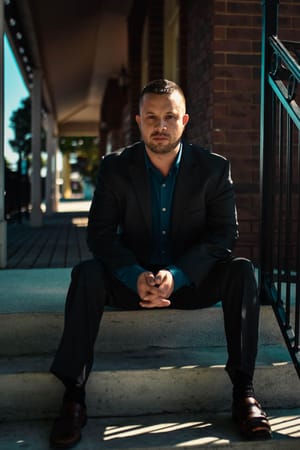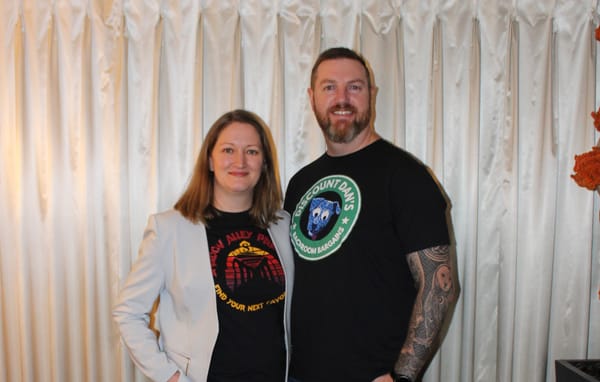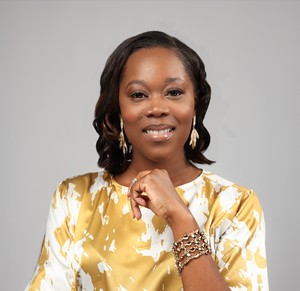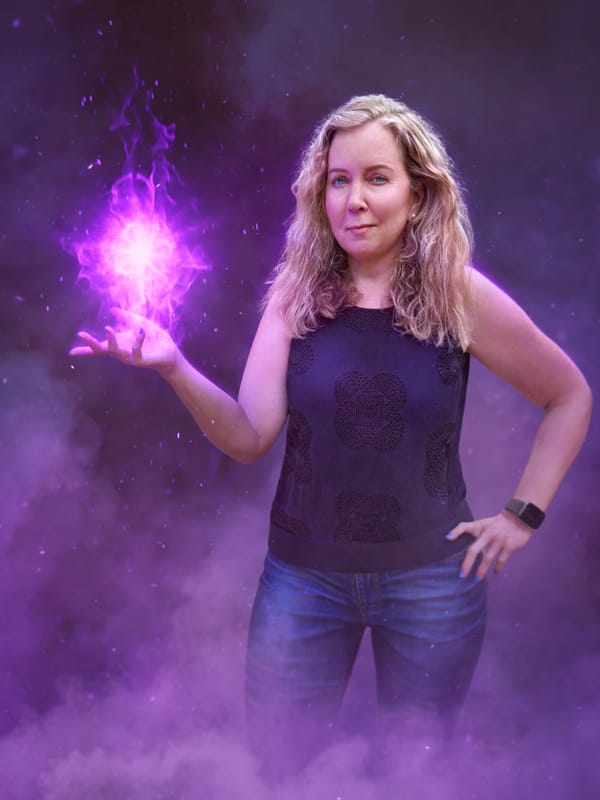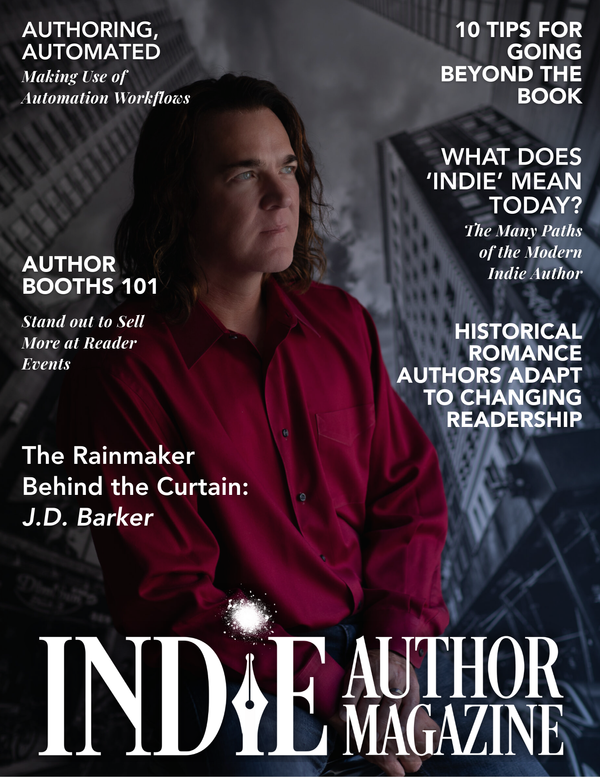Theodora Taylor’s Recipe for Writing Marketable Books Without Writing to Market
Ingredients
Theodora Taylor knows what her readers are hungry for. The Amazon Top 10 bestselling author has a seemingly never-ending backlist of interracial romances, with stories that explore a range of cross-genres and subgenres, from Fantasy to Billionaire Romance.
She describes her fiction as “hot books with heart,” but she’s also carved a niche for herself with a course and a series of nonfiction books, written under the pen name T. Taylor. With these, she advises authors on writing what she calls “universal fantasy,” a particular category of story element that can add “butter,” or extra flavor, to their books.
Now, she’s sharing her experience in becoming a “writer-chef” and discovering all the ingredients that make her writing taste good.
Prep
Theodora studied English literature at Smith College and holds a master’s of fine arts in dramatic writing from Carnegie Mellon University. She spent the early part of her career in LA, where she worked as a playwright, music journalist, and theater critic, until eventually taking a job writing for American Top 40. She loved writing for radio, but the hours became unsustainable after the birth of her first child.
So she shifted to books. Since she’d been working on a Women’s Fiction novel for a few years by then, she tried the traditional publishing route, thinking she’d be a stay-at-home writer-mom. Unfortunately, she quickly discovered both the challenges of writing at home with small children and the unpredictability of traditional publishing. Despite the years she put into her first book, it didn’t earn out the advance, and the publisher was less excited about her second one, telling her it had a lot of problems. “But wow,” she said, “the sex scenes were great.”
Theodora called a friend afterward, crying. “She hated everything except the sex scenes,” she told her. “I should just become a Romance writer.”
Although that Women’s Fiction novel was eventually picked up by Amazon’s Lake Union imprint, the initial rejection was a lightbulb moment for Theodora. She’d always loved Romance and had read a lot of it from a young age. After attending a writing conference where a panel of indie Romance authors seemed much happier than their traditionally published peers, Theodora decided to take the chance.
She wrote her first Romance novel in three months and got paid two months later. Theodora loved having the freedom to take the advice she wanted and leave the rest, hiring an editor who wouldn’t tell her what to do, and being completely in control of her indie author career. She says she felt more comfortable taking risks because “if something fails, you just try again.”
Eleven years later, she’s been able to take what she learned from writing those first two Women’s Fiction books and apply it to her Romances. Once she adjusted from her experience as a playwright to a more narrative style, she found drafting Romances came much more quickly. Theodora can now finish a book in four to six weeks if she’s up against a preorder deadline, although that’s not her preferred routine. Still, she says she’s always jealous of the authors who can do it faster. “No matter how fast you write, you’re always like, ‘There’s this one author I know …’” she says.
She currently has over sixty titles available on her website, and over one hundred listed on her Amazon author page. Theodora’s bestselling series, 50 Loving States, attempts to set at least one book in every state. With five books to go—she has yet to write Georgia, Minnesota, New Hampshire, Utah, and Vermont—she expects to finish the series in 2024. This summer she went hiking in Minnesota for research.
Within the genre, her niche is interracial relationships, like her own—as well as an increasing number of marriages, according to the US Census. However, Theodora also genre-hops within her series to include shifters, billionaires, mafia, vikings, dragons, motorcycle clubs, cowboys, and anything else that interests her.
“I never really look at the market,” she says, “because I’m never sure I can write to that trend if I don’t love it. But sometimes my mood matches the market. For example, with ‘Why Choose’ Romance, I was like, ‘Oh, I like “Why Choose”’ Let me try that.’ And that did really well.” Most recently, she published a series about Scottish shifters, which she says wasn’t really on trend, though shifters in general are perennial among romance readers.
Method
Theodora’s writing routine varies depending on upcoming deadlines, new projects, and her own whims. In the past, she’s worked out of a writing shed at her home in California or a condo in Barbados. “I love people who keep the same routine all the time, but I’m always just kind of like, ‘Where are you at in your season of writing? What do you need to do?’” she says. “Find a routine that will help you do that.”
Her current routine involves getting up early, taking a walk, and then reading a book. She writes with friends from 8 a.m. to noon. After lunch, she says she tries to take a bath or a nap, but it doesn’t always work out. Then she takes an art class “because I’ve always wanted to learn art.” She finishes her workday with a snack and administrative tasks.
Theodora often writes with the same partners, who challenge themselves with sprints or work out craft problems together, “but it changes depending on where I’m at and where other people are.” For example, if she’s on a deadline, she says it helps her to write with someone who’s also feeling that stress. Her favorite collaboration is sprinting admin work with a friend on the West Coast, or meeting up with a friend who specializes in editing and consulting to “just do the hard things,” or the “things you’re scared to do.”
Toward the end of the year, Theodora often goes into what she calls “a season of writing,” during which she’ll dedicate whole days to solitary work and shuttle everything else until she closes out a project. She’ll warn her children that they won’t be seeing as much of her as they usually do—or she’ll send them to sleepaway camps—and then lock herself down for the duration. When the family lived in Barbados, this included pulling blackout curtains, lowering the lights, and turning up the air-conditioning to block out the sounds from the beach. “No matter where I am, I basically need to work in a cave—this little writing troll environment wherever I go,” Theodora says.
She says having the flexibility to work with writing partners between her seasons of writing is a fairly recent shift in her routine. Prior to the pandemic, she was more of a solitary writer, but now she finds herself “really valuing my relationships with other writers,” she says. “I love meeting up with them and also talking with them, and basically, whatever season we’re in, helping each other.”
The pandemic shifted the parameters of another significant relationship in her life as well. In October 2020, Theodora’s husband, Edi Socorro, gave notice at his job in LA and transitioned to running the back end of her author business and being the primary parent. She says that his support was essential to her growth as an author.
“Consistency and tasks that require a ton of executive function aren’t my strong suit, so onboarding someone I could trust who has those two qualities was huge,” she says. The change allowed the family to double their income and live a lifestyle that better suited them, including giving her the freedom to choose “a writing routine that meets where I’m currently at in my journey.”
Add Butter
Despite not writing directly to market, Theodora does write her books to be marketable, and she believes her books sell because she writes intentionally, with a proven system.
The secret ingredient in her success likely lies in how she approaches story structure in her books. Her writing process begins where many authors’ process ends: with the blurb. Before even beginning the outline, she considers what it is about her story idea that readers will like. What tropes are baked into the premise? What makes those tropes something readers can connect with on an emotional level?
If the tropes are what the story is about—enemies to lovers, opposites attract, fish-out-of-water, buddy adventure—then the emotional payout that hooks the reader is what she calls a “universal fantasy,” or “the butter,” which she explains “is all the reasons something tastes good.” Her definition of universal fantasy here is separate from genre and more aligned with concepts like Carl Jung’s collective unconscious or the archetypes of Joseph Campbell’s hero’s journey. Any story can use a universal fantasy to provoke an emotional response in the reader, she says. It’s about tapping into the universal desires or human experiences that make a story compelling.
Adding butter to the description before she writes the book ensures that she’s already providing her reader with the flavor that will satisfy their story cravings. She’s letting them know immediately not just what the book is about but why they will like it.
To develop this delicious description, she follows a six-step outlining process she adapted from Michelle Schusterman’s Fast Outlining method. Moving from a massive run-on sentence to bullet points to Post-Its, she adds butter every step of the way. Every scene includes a universal fantasy that engages the reader with one of the book’s tropes on a deeper level.
When the outline is finished, so is the book description. This detailed plotting process allows her to complete drafts quickly and follow a staggered rapid-release schedule. She says her goal is always to publish twelve books a year, “but the closest I’ve ever gotten was, like, eight.” This year, her 7 Figure Fiction course has cut into her writing time, but she’s still hoping to publish four or five books. “Fingers super-crossed,” she says.
Finished drafts go to her editor and her Patreons at the same time. Cycling the story through Patreon helps her identify which universal fantasies resonate with readers. She recommends this process to writers who are unsure if they’ve used enough “butter” because the reader response will tell you everything you need to know. “It’s a good way to gauge, ‘Oh, this is a good teaser line. Oh, people like this moment,’” she says. One of her previous books offered the perfect example. “I put it through Patreon, and I realized ‘Oh, this is what they like? And my blurb does not have it? I should put what they like in the blurb so people know.’”
Serve
Theodora publishes her finished books exclusively to her own website first, where she has set up direct sales. She treats her launches like a movie, with a few weeks of advertising leading up to the initial release. After selling direct for a week or so, she releases the book wide and goes back to writing the next one.
Books that bring in cold readers may get more advertising attention later on, and she does cycle through ads for popular books from her backlist, but for the most part, Theodora’s books with butter really do sell themselves.
When she looks back on the success of her work so far, Theodora credits not only the readers who love her books but also the other authors she’s met on her journey. “I’m so grateful to all the storytellers in my life, and I’m so grateful that so many people have decided to become storytellers as opposed to only story consumers,” she says.
In the end, like all great chefs who cook with love, Theodora’s biggest advice to other authors is to “just enjoy it,” she says. “Enjoy your career, enjoy what you do, enjoy your relationship with your audience. Enjoy being a storyteller because it’s such an amazing job.”

